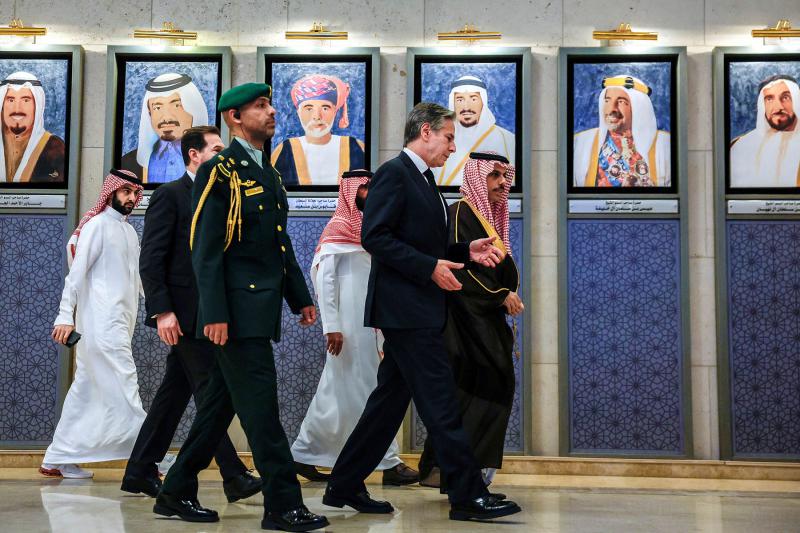WASHINGTON
The United States and Saudi Arabia are close to a final agreement on a bilateral defence pact after the US national security adviser made significant progress in talks with the Saudis over the weekend, the White House said on Monday.
White House national security spokesman John Kirby said the two sides are “closer than we’ve ever been” on a bilateral agreement that is now “near final.”
US and Saudi negotiators are seeking to complete work on a bilateral accord expected to call for formal US guarantees to defend the kingdom as well as Saudi access to more advanced US weaponry, in return for halting Chinese arms purchases and restricting Beijing’s investment in the country.
Negotiators have been discussing US sales of F-35 fighter jets and other weapons to the Saudis as part of the deal, a US official said.
The potential sale of the F-35s to the Saudis was not guaranteed for a variety of reasons, but its inclusion in the discussions was significant because Riyadh has desired the stealthy fighter jet for years.
Any deal must satisfy a long-standing agreement with Israel that US weapons sold in the region must not impair Israel’s “qualitative military edge,” guaranteeing US weapons furnished to Israel are “superior in capability” to those sold to its neighbours.
The US Senate Foreign Relations and House of Representatives Foreign Affairs committees, whose members have criticised the kingdom’s military role in Yemen, have the right to review, and block, weapons sales under an informal review process.
Lockheed Martin Corp, which makes the jet, referred a request for comment to the government.
The defence pact would be short of a NATO-style agreement, the official said.
White House National Security Adviser Jake Sullivan held talks with Saudi Crown Prince Mohammed bin Salman and other Saudi officials over the weekend where progress was made, Kirby said. A second US official said, “We are very close to an understanding on the major elements between us.”
“We of course will also have to then work on pieces that relate to the Israelis and Palestinians, which is a critical component of any potential normalisation deal,” the official said.
The US-Saudi security accord is also expected to involve sharing emerging technologies with Riyadh, including artificial intelligence.
Once the deal is completed, it would be part of a broad agreement presented to Israeli Prime Minister Binyamin Netanyahu to decide whether to make concessions to secure normalised relations with Saudi Arabia.
Kirby said the timing of a US-Saudi deal was unclear. He said an ultimate objective for Biden is a Palestinian state, but with Israel at war with the Palestinian militant group Hamas in Gaza, no deal on this is likely any time soon.
“Of course, the president remains committed to a two-state solution. He recognises that you know, that’s not something we’re going to see any anytime in the future,” he said.
It remains to be seen whether Riyadh could enter into a security pact with the US outside of a normalisation deal with Israel which would precondition a clear path to a Palestinian state as it has stated in the past.
Normalisation without an Israeli commitment to the establishment of a Palestinian state would be highly controversial in the region, especially after the Gaza war.
A separate defence deal with the US would be less controversial but would constitute a serious setback to Chinese ambitions in the Gulf.


